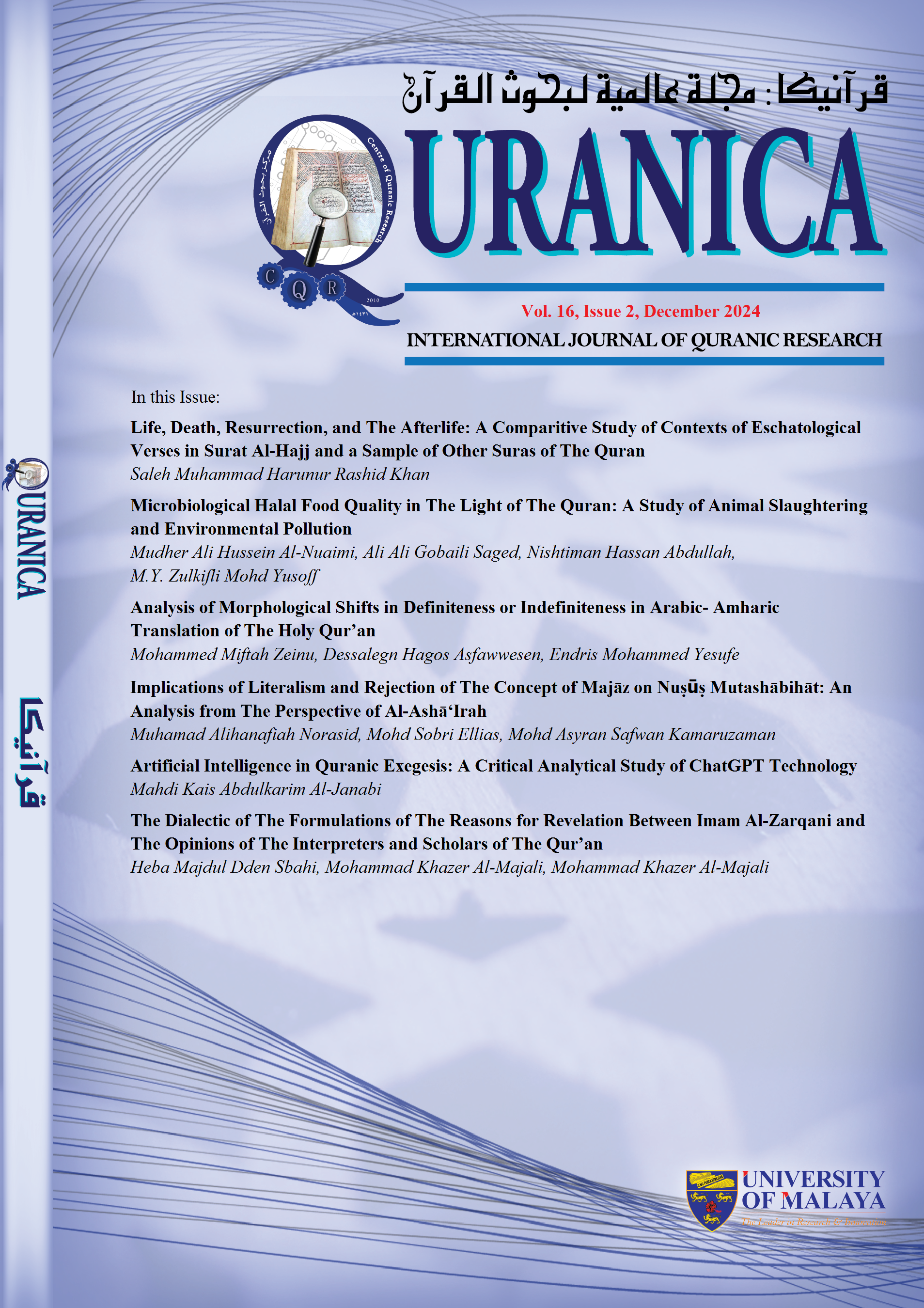Artificial Intelligence in Quranic Exegesis: A Critical Analytical Study of ChatGPT Technology
Main Article Content
Abstract
Recent years have witnessed an increasing interest in employing artificial intelligence technologies in various fields, including the religious domain, where large language models such as ChatGPT have been utilized to provide interpretations of religious texts like the Holy Quran. This study aims to evaluate the accuracy and appropriateness of using ChatGPT in Quranic interpretation through conducting a comparative analytical study between the interpretations provided by this technology and those presented by traditional Quranic scholars. The study concluded that the interpretation provided by ChatGPT does not meet the required level of accuracy and depth, and suffers from the absence of historical and religious context of Quranic verses. The study emphasizes the necessity of developing frameworks and guidelines for the safe use of artificial intelligence in the field of Quranic interpretation to ensure compliance with the conditions and principles of exegesis.
Downloads
Article Details
Disclaimer
QURANICA makes every effort to ensure the accuracy of all its contents. However, opinions, discussions, views and recommendations are expressed in this journal do not necessarily reflect the official policy of QURANICA or views of its editors or publishers. Therefore, QURANICA and its publishers will not be liable for any controversy may be arisen. The journal reserves the right, at its sole discretion, to change its terms and conditions of publications.
Copyright
It is a condition of publication that manuscript submitted to the journal have not been published, accepted for publication, nor simultaneously submitted for publication elsewhere. By submitting a manuscript, the author(s) agrees that copyright for the article is transferred to the publisher, if and when the manuscript is accepted for publication.
